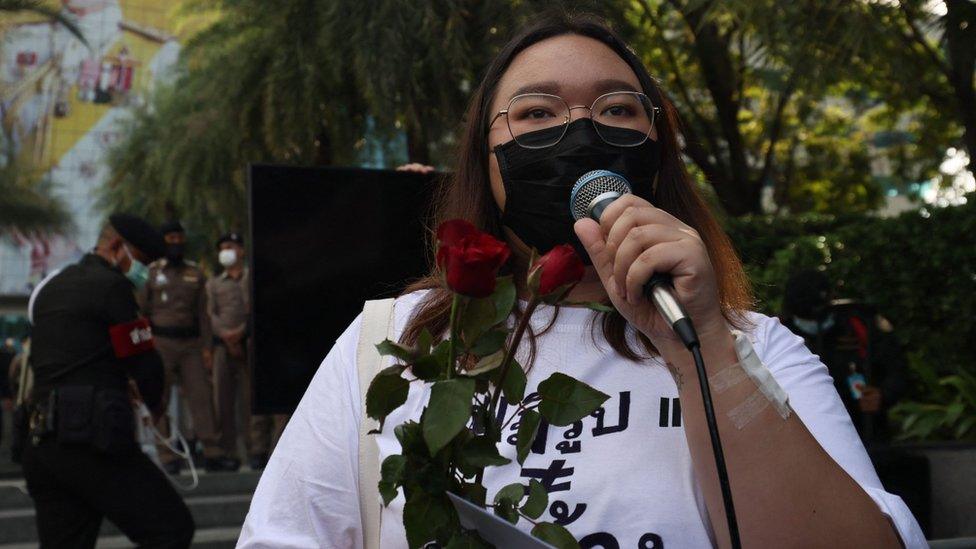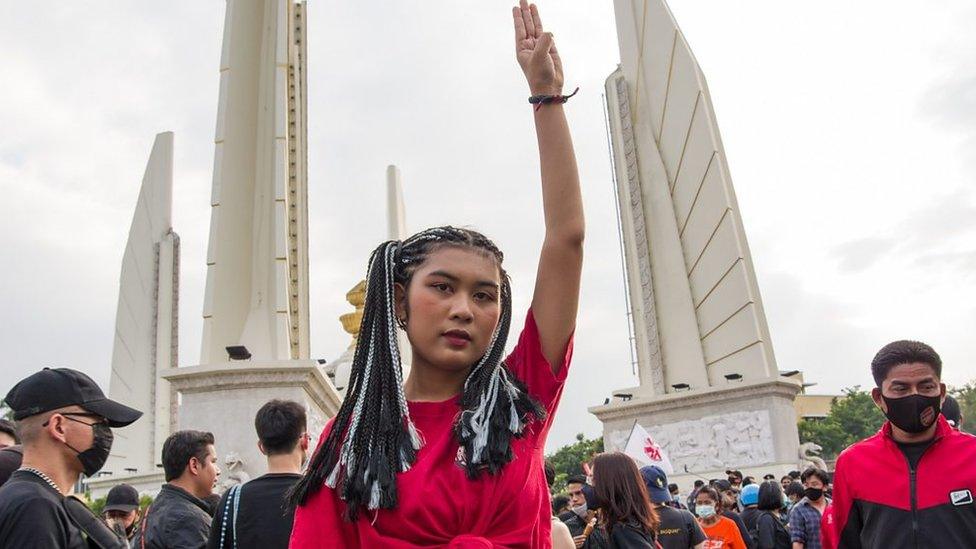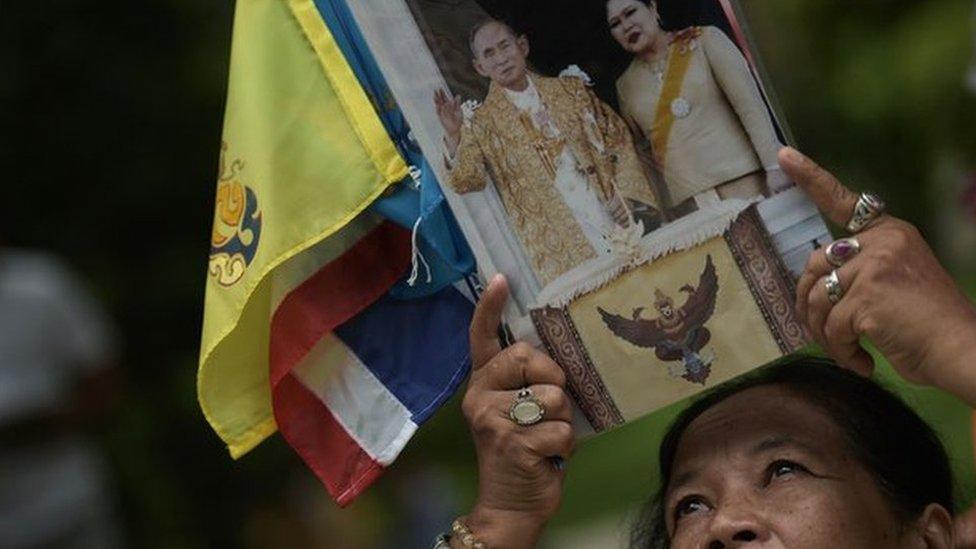Thai court says calls for monarchy reform unconstitutional
- Published

Protest leader Panusaya Sithijirawattanakul was outside the courtroom
A top Thai court has ruled that calls by three protest leaders to reform the monarchy amount to an attempt to overthrow the political system.
The court said speeches made by the activists at mass protests last year were unconstitutional.
The ruling could pave the way for treason charges against the trio, who have all denied any wrongdoing.
Thailand's lèse-majesté law, which forbids any insult to the monarchy, is among the strictest in the world.
In a ruling broadcast on television on Wednesday, justices at the constitutional court described the monarchy as "the key pillar that the kingdom can't be without".
"Any actions that seek to undermine or weaken the institution show intentions to overthrow the monarchy," they said.
Last year's mass anti-government protests in Thailand shattered a taboo on criticising the monarchy, though protest leaders were careful to call for changes to the institution, not its abolition.
Thailand’s youth rebellion: Protest movement demands monarchy reform
Wednesday's court case concerned a speech by protest leader Panusaya "Rung" Sithijirawattanakul, which called for greater transparency over royal finances and the abolition of Thailand's lèse-majesté laws, and others by Arnon Nampa and Panupong "Mike" Jadnok.
"If we allow the first, second and third defendant and their networks to keep doing this action, it will not be long to lead to the overthrow of the constitutional monarchy," judge Chiranit Havanond said.
All three protesters have said they have no desire to topple the monarchy.
Kritsadang Nutcharat, a lawyer for Mr Arnon and Mr Panupong, warned that the constitutional court ruling "could impact [on] future calls for reform".


This ruling effectively closes down any space in Thailand for public discussion of the monarchy, and lays the three activists cited by the court open to charges of treason, which carries the death penalty.
However, private discussion and criticism of the monarchy has expanded in recent years, and will certainly continue on social media, despite the government's constant efforts to police and shut down such comment.
Today's ruling will also be widely seen as yet another politicised intervention on the side of conservative, royalist forces, by a court which was meant to be independent when it was established more than 20 years ago.

Related topics
- Published14 August 2020

- Published4 December 2020

- Published6 October 2017
